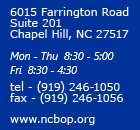Pharmacist FAQsFrequently Asked Questions for Pharmacists on Compounding / USP <795>
USP has developed very detailed FAQs on <795>: https://www.usp.org/frequently-asked-questions/compounding
Adding flavoring to Conventionally Manufactured Products Q. Is adding flavoring to a conventionally manufactured product considered compounding? A. USP considers adding flavoring to a conventionally manufactured product to fall within the scope of compounding, because there are known instances when flavoring components have destabilized a product. If a pharmacy adds flavoring to a manufactured product it must take into account the manufacturer’s Beyond Use Date (BUD) and the effect on stability caused by adding flavoring. If a flavoring component is added to a manufactured product that does not contain a preservative (e.g.: reconstitution of amoxicillin oral suspension) the BUD is 14 days refrigerated or shorter if indicated in the manufacturer’s labeling. If a flavoring component is added to a manufactured product that contains a preservative (e.g. pyridostigmine oral solution), then the BUD is 35 days in controlled room temperature or refrigerated or shorter if indicated in the manufacturer’s labeling. The addition of flavoring including the flavor manufacturer or product, lot number, and expiration date must be documented in the patient record notes for the prescription.
MONDAY, SEPTEMBER 23, 2019 IMPORTANT INFORMATION CONCERNING UNITED STATES PHARMACOPEIA’S ANNOUNCEMENT POSTPONING THE EFFECTIVE DATE OF REVISED CHAPTERS <795> AND <797>. The United States Pharmacopeia (“USP”) announced today, September 23, 2019, that – as required by USP by-laws – it is postponing the effective date of USP chapters <795> and <797> while appeals for review of these revised chapters are resolved. These chapters were previously scheduled to go into effect on December 1, 2019. More detail is found here: https://www.uspnf.com/notices/compounding-chapters-postponement How does USP’s announcement affect North Carolina-permitted pharmacists and pharmacies? 1. Existing USP chapters <795> and <797> will continue to be enforced. Board inspections and investigative staff will continue to use the inspection forms and tools mapped to existing USP chapter requirements (found here: http://www.ncbop.org/phcyinspectionforms.html). As pharmacists know, under both federal law (the Drug Quality and Security Act) and Board rule (21 NCAC 46.2801), compounding activities must conform with the standards in these chapters. The revised chapters will be enforced when they go into effect. USP did not set a new effective date in its announcement today. 2. Board staff will not begin inspecting for compliance with USP chapter <800> standards in compounding activities on December 1, 2019. USP’s announcement notes that chapter <800> is not subject to an appeal and will go into effect on December 1, 2019. Nonetheless, both the DQSA and Board rule .2801 require compliance with chapters <795> and <797> and other chapters incorporated into them. Existing chapters <795> and <797> do not incorporate chapter <800>. Revised chapters <795> and <797> do. Accordingly, Board staff will begin inspecting for compliance with chapter <800> standards at such time as the revised chapters go into effect. Again, USP did not set a new effective date in its announcement today. Pharmacies that have already implemented changes to comply with chapter <800> are commended for doing so. And pharmacies working toward chapter <800> compliance are strongly encouraged to take the time afforded by this delay to finalize those preparations. For a review of prior Board statements concerning USP <800>, see http://www.ncbop.org/PDF/BoardPositionStatementforUSP800UPDATEDMarch2019.pdf and http://www.ncbop.org/PDF/NCBOP_USP_800_Statement.pdf
|

